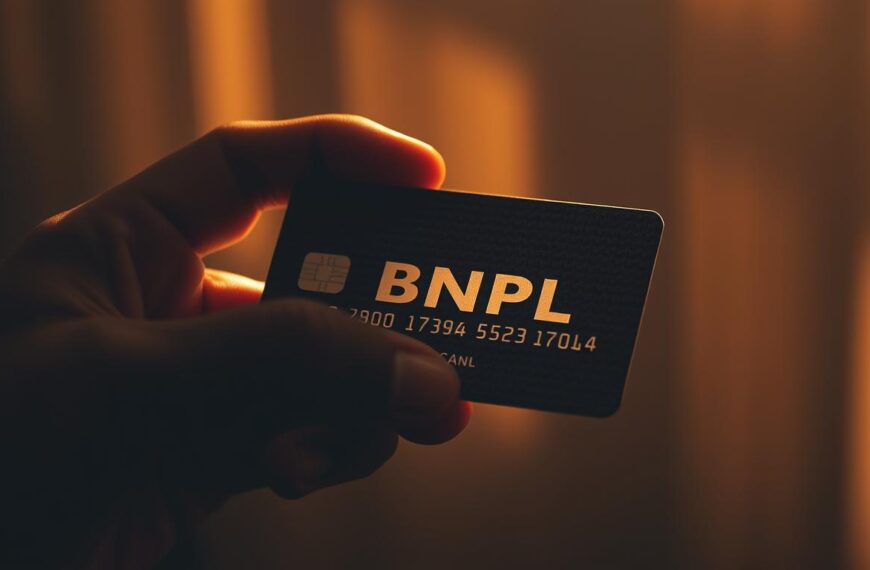Smart money management is crucial for personal finance success. Budgeting empowers you to make informed financial decisions. Studies show 76% of adults feel stressed about their finances, highlighting the need for effective budgeting.
Effective financial planning involves understanding income, tracking expenses, and setting clear goals. A zero-based budget ensures complete control over spending. Setting specific, measurable financial goals can boost success rates by nearly 60%1.
Your journey to financial freedom starts with understanding your unique financial situation. People who maintain detailed budgets are 2.5 times more likely to achieve savings goals2. It may take three to four months to become comfortable with budgeting1.
Money management isn’t about perfection, but consistent effort. The 50/30/20 rule offers a structured approach to budgeting. Allocate 50% to essentials, 30% to non-essentials, and 20% to savings2.
Couples who budget together are 80% more likely to reach their financial objectives1. By using these budgeting tips, you can improve your financial future. Every small step counts towards building a more secure financial life.
Understanding the Fundamentals of Budgeting
Budgeting is a powerful financial tool. It helps you control your money and make smart spending decisions. With budget essentials, you can transform your finances and achieve your goals.
Creating an effective budget needs clear financial knowledge. It also requires the right money mindset. Almost 60% of people find it hard to track expenses regularly3.
This shows how important strong budgeting skills are. Mastering these skills can lead to better financial health.
What Makes a Budget Essential
A budget is more than numbers on a page. It’s a plan for your financial future. Here’s why budgeting matters:
- Provides clarity on spending habits4
- Helps align expenses with financial goals
- Creates a framework for financial discipline
Key Budgeting Terminology
Understanding financial terms can make budgeting easier. Let’s look at some key words:
- Income: Your total earnings after tax4
- Fixed Expenses: Consistent monthly costs like rent and utilities3
- Variable Expenses: Fluctuating costs such as groceries and entertainment
The Psychology of Successful Budgeting
Budgeting is not about restricting yourself, but about making your money work for you.
The right money mindset can greatly improve your finances. About 70% of people who budget feel more in control of their money3.
Key psychological strategies include:
- Viewing budgeting as a tool for achieving dreams
- Celebrating small financial victories
- Maintaining a positive attitude towards saving
Using these principles can help you create a lasting budget. It will support your financial dreams and keep you on track.
Calculate and Track Your Monthly Income
Understanding your income calculation is vital for sound financial planning. Net income is the money you take home after taxes and deductions5. Knowing your exact earnings helps create a realistic budget.
Here are key approaches for tracking salary:
- Calculate monthly income based on your pay frequency5
- Bi-weekly: Multiply take-home pay by 26, then divide by 12
- Weekly: Multiply weekly pay by 52, then divide by 12
- Account for irregular income by averaging three months of earnings5
- Include all income sources:
- Regular salary
- Freelance work
- Side hustles
- Investment returns
Pro tip: Budgeted expenses should not exceed 90% of your take-home income for optimal financial health5.
“Know your numbers to control your financial destiny” – Financial Planning Wisdom
Effective salary tracking needs consistent monitoring. Use spreadsheets, budgeting apps, or financial software to simplify the process. These tools help maintain accurate records6.
| Income Type | Calculation Method | Frequency |
|---|---|---|
| Regular Salary | Gross Income – Deductions | Monthly |
| Freelance | Total Project Earnings | Variable |
| Side Hustle | Net Earnings | Monthly/Quarterly |
Mastering income calculation and salary tracking gives you better control over your finances. This skill is crucial for your financial future6.
Essential Tips for Budgeting
Creating an effective budget requires strategic planning and understanding your finances. It’s about making a roadmap to financial freedom. This roadmap should align with your personal aspirations.
Setting Realistic Financial Goals
Establishing financial goals is crucial for maintaining motivation and direction. Research shows that setting SMART goals boosts your chances of financial success7.
In fact, 80% of people who align budgets with personal objectives report increased financial satisfaction8.
- Create specific and measurable financial targets
- Set time-bound objectives
- Review goals monthly to track progress
Creating Emergency Savings
Building an emergency fund is vital for financial stability. Experts suggest keeping 3 to 6 months of living expenses in an accessible account8.
Surprisingly, only 39% of individuals currently maintain such an emergency fund8.
Avoiding Common Budgeting Errors
Many budgeters face pitfalls that can derail their financial plans. Awareness is the first step to prevention. A quarter of people underestimate expenses or forget to track small purchases8.
About 60% of people run out of money before month’s end, despite having a budget8.
“Budgeting is not about restricting yourself, but about understanding where your money goes and making intentional choices.”
- Track all expenses, including small purchases
- Plan for irregular costs
- Review and adjust your budget regularly
By using these strategies, you can improve your approach to financial goals and budgeting. This will help create a more secure financial future.
Managing Fixed and Variable Expenses
Grasping fixed costs and variable expenses is vital for smart money management. Fixed expenses stay the same each month. These include mortgage, rent, insurance, and utility bills.
Variable expenses change based on your spending habits and lifestyle choices.
The 50/30/20 budgeting rule is a popular method for expense categorisation. It suggests splitting your income in three ways:
- 50% of income to necessities (fixed costs)
- 30% to discretionary spending (variable expenses)
- 20% towards savings and debt payments9
Monitoring variable expenses needs careful attention. Looking at past spending helps predict future budgets more accurately. Add a 3-5% cushion to your highest variable costs for flexibility.
Pro tip: Regular budget check-ins can help you adjust and optimise your spending strategy9.
Try these practical strategies for managing expenses:
- Set clear spending limits
- Use automatic transfers for savings
- Look for ways to reduce recurring costs9
Know your unique expense profile for successful financial management. Separate fixed costs from variable expenses. This approach creates a more resilient and adaptable budget.
Smart Ways to Reduce Monthly Spending
Strategic planning and clever cost-cutting can improve your financial health. By using intelligent money-saving tips, you can save money without sacrificing your quality of life.
These methods can help you manage your monthly expenses effectively. You’ll be able to see significant improvements in your finances over time.
Cutting Unnecessary Expenses
Many households waste money on unused subscriptions and services. On average, UK households spend £500 yearly on subscriptions. Reviewing your monthly expenses can help you find areas to cut back.
- Cancel unused streaming services
- Review monthly subscription packages
- Eliminate redundant services
Implementing Money-Saving Strategies
Smart budgeting involves creative ways to reduce expenses. Here are some practical money-saving tips to consider:
- Turn down the thermostat by one degree to save up to £80 annually10
- Prepare meals at home instead of buying takeaways10
- Turn off appliances on standby to save around £40 per year10
| Strategy | Potential Annual Savings |
|---|---|
| Reducing thermostat | £80 |
| Home cooking | £200-£500 |
| Turning off standby devices | £40 |
Using Technology for Better Budget Management
Modern budgeting apps can transform how you track your finances. These digital tools automatically categorise transactions and show your spending habits11.
Regular monthly budget reviews are crucial for identifying savings opportunities11. They help you stay on top of your financial goals.
Technology is your financial ally in achieving smarter spending habits.
Combining these strategies can help you reduce monthly spending effectively. Small changes in your habits can lead to significant savings over time.
Remember to review your budget regularly and adjust as needed. This will help you create a more robust financial future.
Digital Tools and Resources for Budget Planning

Digital budgeting software and financial apps have revolutionised personal finance management. These online resources simplify expense tracking and help achieve financial goals12. With strategic budget planning, individuals can save £3,000 to £5,000 yearly using these sophisticated tools12.
Choosing the right budgeting tool depends on your specific financial needs. Several top options are available in the digital landscape:
- Mint: Free budgeting app with comprehensive expense tracking
- YNAB (You Need A Budget): Robust financial planning platform
- QuickBooks: Ideal for small businesses with 1-50 employees13
Digital financial apps offer crucial benefits. They help users avoid common budgeting pitfalls through detailed expense categorisation12. Most platforms include automated transaction sorting, goal-setting interfaces, and personalised financial insights13.
“Technology transforms budget management from a chore into an empowering financial journey.”
When selecting budgeting software, consider these key factors:
- User-friendly interface
- Comprehensive expense tracking
- Security and data protection
- Integration with banking platforms
Digital financial tools make budgeting more accessible and engaging. They transform complex financial management into a straightforward process12.
Conclusion
Developing robust money management skills requires continuous learning and adaptation. Budgeting is an ongoing process that demands dedication and strategic thinking14. Regular budget reviews can transform your finances, helping you track progress and make informed decisions15.
Financial success starts with understanding your spending patterns and setting realistic goals. Consistency is key, whether you’re using the 50/30/20 rule or a personalised approach14. Small changes can lead to significant improvements over time.
Tracking expenses and adjusting your strategy are crucial steps16. Building financial resilience takes practice. An emergency fund provides a safety net for unexpected situations.
Automated savings help you set aside money consistently without feeling the pinch15. Don’t be discouraged by initial challenges. Every financial skill improves with patience and persistent effort16.
Your financial journey is unique. Your budget should reflect your personal goals and lifestyle. Stay motivated and remain flexible. Celebrate small victories as you work towards your financial aspirations.
FAQ
What exactly is budgeting and why is it important?
Budgeting tracks income and expenses, enabling better financial control. It helps you understand spending patterns and create savings goals. This process ensures your money is allocated purposefully, leading to long-term financial stability.
How do I start creating a budget if I’ve never done it before?
Start by tracking all income sources and expenses for a month. Use a spreadsheet or budgeting app to categorise your spending. Identify areas where you can cut back and set realistic financial goals.
Keep it simple and be consistent. Gradually refine your budgeting approach as you become more comfortable with the process.
What percentage of my income should go towards savings?
Financial experts typically recommend saving 10-20% of your net income. This can vary depending on individual circumstances. Start with a comfortable percentage and gradually increase it over time.
How can I manage irregular income from freelance or contract work?
Create a baseline budget using your lowest expected monthly earnings. Save excess income during higher-earning months in an emergency fund. This approach provides financial stability and helps manage income fluctuations.
What’s the best way to track my expenses?
Use digital tools like budgeting apps or spreadsheets that offer automatic expense categorisation. Keep receipts and review bank statements regularly. Consider using a dedicated bank account for easier expense tracking.
How large should my emergency fund be?
Aim to save 3-6 months of living expenses in an easily accessible savings account. This provides a financial safety net for unexpected events. Start small and gradually build up your emergency fund.
What are the most common budgeting mistakes to avoid?
Common mistakes include underestimating expenses and failing to account for irregular costs. Not reviewing your budget regularly and being unrealistically strict are also pitfalls.
Create a flexible budget that allows for occasional treats while maintaining financial discipline.
Which budgeting apps do you recommend for UK users?
Popular UK budgeting apps include Monzo, Starling Bank, YNAB (You Need A Budget), and Plum. These offer features like automatic expense tracking and savings goals. Choose one that aligns with your financial management style.
How often should I review and update my budget?
Review your budget monthly to ensure it reflects your current financial situation. Conduct a more comprehensive review quarterly or when significant life changes occur.
Can budgeting help me pay off debt?
Yes, budgeting helps identify areas where you can cut expenses and redirect funds towards debt repayment. Use strategies like the debt snowball or debt avalanche method. These help systematically reduce debts while maintaining a structured financial plan.

















